R-(-)-Apomorphine
Synonym(s):R-(−)-Apomorphine hydrochloride hemihydrate
- CAS NO.:41372-20-7
- Empirical Formula: C17H20ClNO3
- Molecular Weight: 321.8
- MDL number: MFCD27966809
- EINECS: 627-402-4
- SAFETY DATA SHEET (SDS)
- Update Date: 2025-01-27 09:38:02
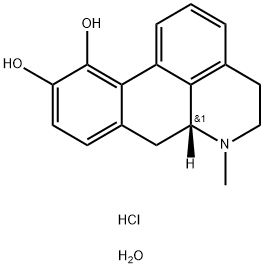
What is R-(-)-Apomorphine?
Description
Apomorphine (41372-20-7) is an archetypal dopamine pan-receptor agonist. Displays anti-Parkinsons activity in vivo.1 Protects against MPTP-induced neurotoxicity in a mouse mode1,2 In clinical use for Parkinson’s disease.4,5
Chemical properties
Off-White Solid
The Uses of R-(-)-Apomorphine
emetic, antiparkinsonian, erextile dysfunction therapy
The Uses of R-(-)-Apomorphine
Dopamine (D1 and D2) receptor agonist. Emetic. Antiparkinsonian.
The Uses of R-(-)-Apomorphine
R-(?)-Apomorphine hydrochloride hemihydrate is a nonselective dopamine agonist with anti-Parkinsonian and neuroprotective effects in vivo.
What are the applications of Application
R-(?)-Apomorphine hydrochloride hemihydrate is a nonselective dopamine agonist
brand name
Apokyn (Vernalis).
Purification Methods
Crystallise the salt from H2O (hemihydrate) and from EtOH. Crystals turn green on exposure to light. (see previous entry). NARCOTIC.
References
1) Merck Index 14:746 2) Millan et al. (2002), Differential actions of antiparkinson agents at multiple classes of monoaminergic receptor. I. A multivariate analysis of the binding profiles of 14 drugs at 21 native and cloned human receptor subtypes; J. Pharmacol. Exp. Therap., 303 791 3) Grunblatt et al. (1999), Apomorphine protects against MPTP-induced neurotoxicity in mice.; Mov. Discord, 14 612 4) Auffret et al. (2017), Apomorphine pump in advanced Parkinson’s disease: Effects on motor and nonmotor symptoms with brain metabolism correlations; J. Neurol. Sci, 372 279 5) Jenner and Katzenschlager (2016), Apomorphine – pharmacological properties and clinical trials in Parkinson’s disease; Parkinsonism. Related. Disord., 33 Suppl. 1:S13
Properties of R-(-)-Apomorphine
| Melting point: | 285-287 °C(lit.) |
| alpha | -48 º (c=1, H2O) |
| storage temp. | Refrigerator |
| solubility | H2O: ~10 mg/mL, clear, yellow-green |
| form | calcined |
| form | Solid |
| color | white to gray |
| PH | pH(10g/l, 25℃) : 4.0~5.0 |
| Merck | 13,751 |
| Stability: | Stable for 1 year from date of purchase as supplied. Solutions in distilled water may be stored at -20°C for up to 1 week. |
| CAS DataBase Reference | 41372-20-7(CAS DataBase Reference) |
Safety information for R-(-)-Apomorphine
| Signal word | Danger |
| Pictogram(s) |
 Skull and Crossbones Acute Toxicity GHS06 |
| GHS Hazard Statements |
H301:Acute toxicity,oral |
Computed Descriptors for R-(-)-Apomorphine
R-(-)-Apomorphine manufacturer
New Products
Trans-methyl 4-aminocyclohexane- carboxylate HCl 3-(hexyloxy)-4-(pyridin-3-yl)-1,2,5-thiadiazole 2-Propanamine, 1-chloro-, hydrochloride (9CI) 3-Pyridineacetonitrile, α-hydroxy- 3-Iodophenylacetic acid (S)-1-Boc-3-methanesulfonyloxy-pyrrolidine Cyclohexane, (2-propynyloxy)- 3-Bromobenzaldehyde, 95% 2-Naphthol, 98% Cysteamine hydrochloride, 98% Copper(II) bromide, 98% 1-Chloro-2,4-difluorobenzene,98% Dodecylbenzenesulfonic acid, 95% L-Glycine methyl ester.HCl Fmoc-L-Tyr(tBu)-OH Calcium Alphaketoglutarate* H-Ser(t-Bu)-Ser(t-Bu)-Gly-OH Fmoc-Ser(tBu)-Ser(Ψ(Me,Me)pro-OH Triphosgene 5-Cyanophthalide 10-Methoxy-5H-dibenz[b,f]azepine L-Glutamic Acid Dimethyl Ester Hcl 2-AMINO-3,5-DIBROMO BENZALDEHYDE [ADBA] 4-(3,4-Dichlorophenyl)-3,4-Dihydro-N-Methyl-1-(2H)-Naphthalenimine (Schiff Base)Related products of tetrahydrofuran

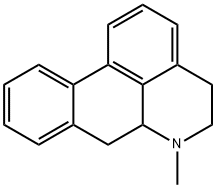

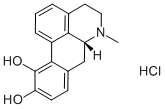
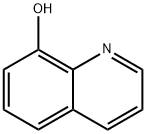


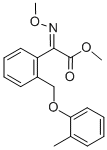
You may like
-
 41372-20-7 Apomorphine hydrochloride hemihydrate 98%View Details
41372-20-7 Apomorphine hydrochloride hemihydrate 98%View Details
41372-20-7 -
 41372-20-7 98%View Details
41372-20-7 98%View Details
41372-20-7 -
 Apomorphine HCl Reference Standard 41372-20-7 98%View Details
Apomorphine HCl Reference Standard 41372-20-7 98%View Details
41372-20-7 -
 873-74-5 4-Aminobenzonitrile 99%View Details
873-74-5 4-Aminobenzonitrile 99%View Details
873-74-5 -
 872-85-5 99%View Details
872-85-5 99%View Details
872-85-5 -
 N,N-Carbonyl diimidazole 99%View Details
N,N-Carbonyl diimidazole 99%View Details
530-62-1 -
 3- Pyridinecarboxaldehdye 500-22-1 99%View Details
3- Pyridinecarboxaldehdye 500-22-1 99%View Details
500-22-1 -
 80841-78-7 DMDO-Chloride 92%View Details
80841-78-7 DMDO-Chloride 92%View Details
80841-78-7
